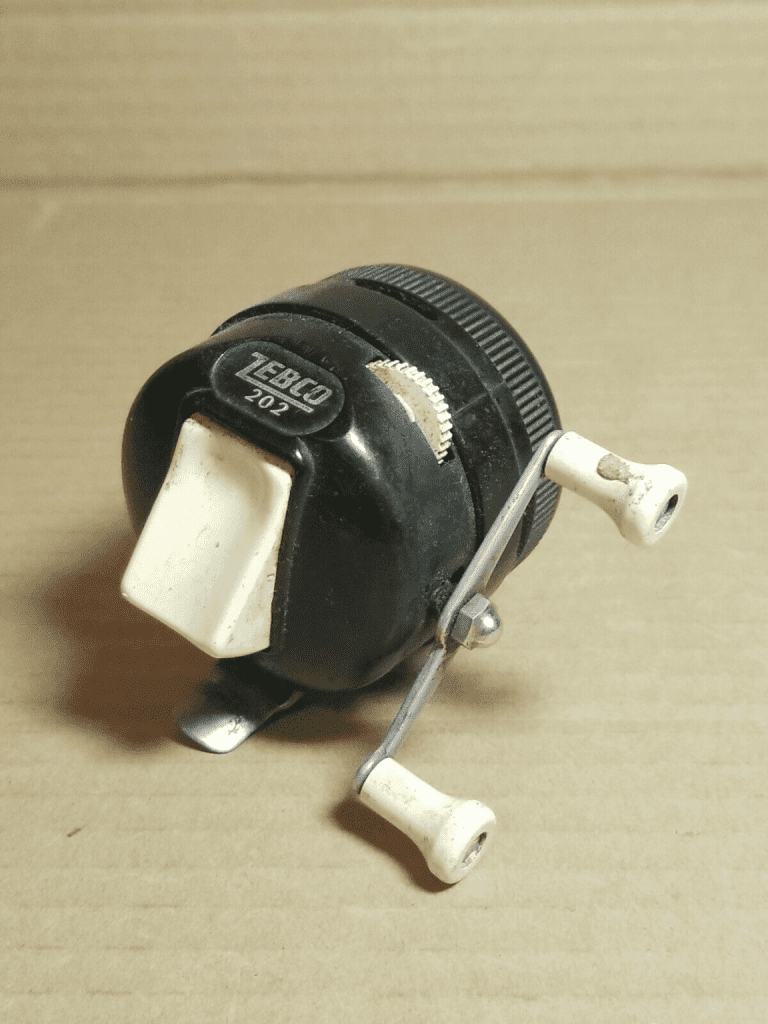Fishing, a tradition spanning centuries, has evolved with countless innovations. Among these, the vintage metal foot casting fishing reel stands as a significant symbol of angling’s rich history. This piece of equipment marks a technological milestone and testifies to the craftsmanship and ingenuity of its era. Let’s delve into the captivating history, practical usage, and enduring legacy of this remarkable fishing reel.

The journey of the vintage metal foot casting fishing reel began in the early 20th century. By then, fishing had transformed from a means of survival into a leisure activity enjoyed worldwide. This shift created demand for more sophisticated and efficient fishing gear, leading to the invention of the casting reel.
The casting reel’s story traces back to the late 18th and early 19th centuries. Reels at this time were rudimentary, made mostly from wood or brass. These early reels were simple in design, lacking the refined engineering of later models. The metal foot casting fishing reel changed the game by introducing durable materials and intricate mechanisms, setting it apart from predecessors.
The early 1900s brought significant advancements in reel design and manufacturing. Metal became the go-to material for crafting fishing reels due to its strength and resistance to corrosion. Companies like Shakespeare, Pflueger, and Penn led this evolution, producing reels that combined durability with precision engineering.
The introduction of the metal foot—a metal plate at the reel’s base—provided stability and ensured a secure attachment to the fishing rod. This innovation revolutionized fishing, allowing anglers to cast their lines with greater ease and accuracy.

The mid-20th century is often referred to as the golden age of fishing reels. During this period, reels became more than just functional tools; they became crafted works of art. Manufacturers experimented with different metals, such as aluminum and stainless steel, to create reels that were lightweight yet robust. The intricate designs and meticulous craftsmanship of vintage metal foot casting fishing reels from this era have made them highly sought after by collectors and fishing enthusiasts alike.
The vintage metal foot casting fishing reel enhanced the angling experience by providing greater control and efficiency. Its usage can be broken down into several key aspects:
Anglers primarily used the reel to cast their lines with precision. By employing a spinning mechanism, the reel allowed for smoother line release, reducing tangles and ensuring accurate placement of bait or lure. The metal foot played a crucial role in maintaining stability during casting, allowing anglers to achieve longer distances and improved accuracy.

Once cast, the vintage metal foot casting fishing reel provided superior retrieval capabilities. The handle mechanism, often equipped with a drag system, allowed anglers to control line tension, making it easier to reel in fish. This feature benefited those targeting larger or more aggressive species, as it prevented line breakage and improved the angler’s ability to land their catch.
One of the standout features of the vintage metal foot casting fishing reel was its durability. High-quality metals ensured the reel could withstand frequent use and exposure to the elements. This reliability made it a trusted companion for anglers on long fishing expeditions, whether in freshwater lakes or saltwater oceans.

These reels were versatile tools suitable for various fishing styles and environments. Whether casting from the shoreline, trolling from a boat, or engaging in fly fishing, the vintage metal foot casting fishing reel adapted to different techniques, making it a valuable asset for anglers of all skill levels.
The vintage metal foot casting fishing reel leaves a multifaceted legacy, impacting fishing culture, influencing modern reel design, and gaining status as a collector’s item.
The metal foot casting fishing reel democratized the sport, making fishing more accessible to a broader audience. As a result, fishing grew in popularity as both a recreational activity and a competitive sport. This reel played a pivotal role in shaping angling culture, fostering community among enthusiasts, and contributing to fishing’s development as a cherished pastime.
The innovations of vintage metal foot casting fishing reels laid the foundation for modern fishing equipment. Durability, precision engineering, and ease of use continue to guide contemporary reel design. Today’s reels may incorporate advanced materials and technology, but they owe much of their success to the pioneering efforts of early reel manufacturers.

Today, vintage metal foot casting fishing reels have transcended their utilitarian purpose to become prized collector’s items. Enthusiasts and collectors value these reels for their historical significance, craftsmanship, and nostalgic appeal. Auctions and specialty shops often feature vintage reels, with some fetching substantial sums due to their rarity and condition. Collectors seek out specific models, appreciating their intricate designs and the stories they carry from a bygone era.
The allure of vintage reels has spurred growing interest in preservation and restoration efforts. Many collectors and enthusiasts dedicate themselves to restoring these reels to their original glory, ensuring their legacy endures for future generations. This dedication highlights the enduring appeal of vintage metal foot casting fishing reels and their place in the broader narrative of fishing history.
The vintage metal foot casting fishing reel stands as a testament to its time’s ingenuity and craftsmanship. Its history, usage, and legacy illustrate the evolution of fishing equipment and its impact on angling culture. From humble beginnings to collector’s treasure status, this reel captivates fishing enthusiasts and collectors worldwide. As we celebrate its legacy, we acknowledge the timeless appeal of the vintage metal foot casting fishing reel and its enduring place in fishing history.





